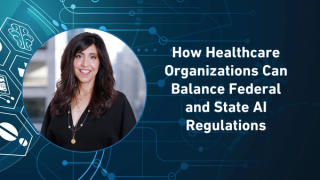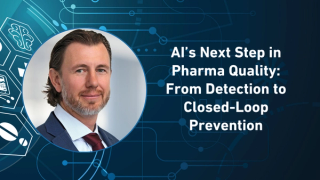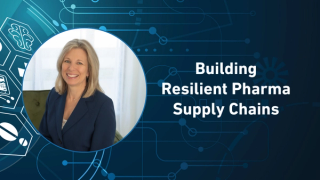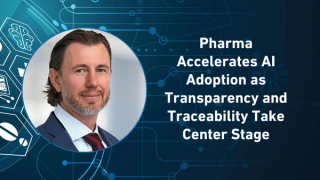
Data & Technology
Latest News

Latest Videos

Podcasts
More News

A new report underscores how 2D barcodes and automated data capture powered by GS1 standards can help logistics and life sciences companies overcome outdated systems, labeling issues, and visibility gaps.
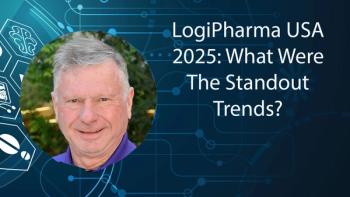
Dave Malenfant, healthcare supply chain expert, outlines the topics that are top of mind at the show.

Experts from Moderna, Revelation Pharma, and Alexion offer ways to reduce risks, improve real-time visibility, and ensure product integrity in the growing ship-to-home market.

Christy Christian, senior industry principal with Kinaxis, and Hari Kiran Chereddi, CEO of HRV Pharma, explain why AI’s reliability depends on product stability, how human judgment still matters, and how a digital, AI-validated manufacturing backbone is accelerating regulatory reviews, strengthening supplier management, and transforming global production readiness.

This guide shows how to move beyond rear-view reporting and transform data into actionable strategies that drive payer engagement, sharpen planning, and maximize brand performance.

How is AI solving pharma's speed-to-market challenge?
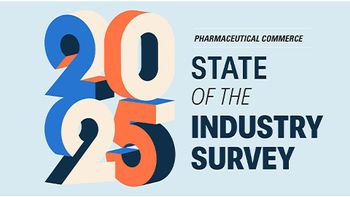
Capturing insights from executives and industry experts on the biggest challenges shaping pharma today, from drug pricing pressures and access barriers to supply chain shifts, digital adoption, and evolving patient-centered care strategies.

Ullrich Mayeski, community engagement director of health with GS1 US, emphasizes the critical need to address interoperability challenges at the dispenser level, ranging from small independent pharmacies to large hospital systems.
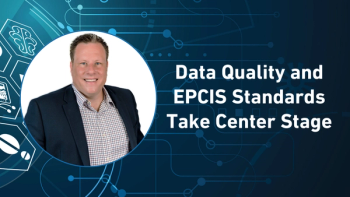
Ullrich Mayeski, community engagement director of health with GS1 US, describes the organization’s EPCIS standard for meeting DSCSA requirements while underscoring that true supply chain success depends on robust data quality practices, clear procedures, and cross-team accountability to ensure patients receive their medications without disruption.

Industry leaders—from manufacturers, distributors, and dispensers—reported increased preparedness for compliance, with discussions shifting toward exception management, governance, and enforcement readiness, note Ullrich Mayeski of GS1 US and Mark Karhoff of Ten Count Consulting.

In the final part of his Pharma Commerce video interview, Boyede Sobitan, Zebra Technologies’ global healthcare strategy lead, details how in a post-COVID landscape, technologies that track and regionalize hospital inventory could become critical tools for state and local health departments, ensuring visibility, preparedness, and smarter resource allocation during future disruptions.
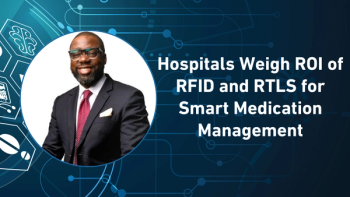
In the third part of his Pharma Commerce video interview, Boyede Sobitan, Zebra Technologies’ global healthcare strategy lead, explains why forward-thinking facilities see these tools as key to cutting errors and improving inventory efficiency.
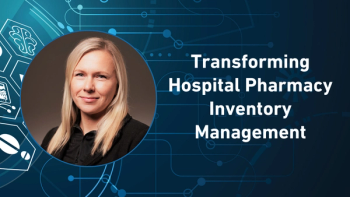
In the second part of her Pharma Commerce video interview, Annika Matas, Zebra Technologies’ senior director of product management and business operations, supplies & sensors, shares that from automated RFID cabinets to handheld scanners, hospitals are streamlining inventory tracking, cutting labor costs, and reducing medication loss, especially critical during drug shortages.

Why the life science industry needs to move away from omnichannel marketing strategies and toward optichannel approaches that boost personalization and ROI in an era of shrinking budgets.

This episode of Pharma Pulse covers rising influenza vaccination rates among historically underserved populations, a new Circurna–GATC Health partnership using AI to advance circular RNA therapies, and fresh research showing many statin-intolerant patients are self-medicating despite limited benefits for lowering LDL cholesterol.

This episode of Pharma Pulse covers ACOG’s renewed support for COVID-19 vaccination during pregnancy, new real-world evidence confirming the safety of dapagliflozin and empagliflozin for type 2 diabetes, and a partnership between EVERSANA and Waltz Health to improve affordability and patient access.
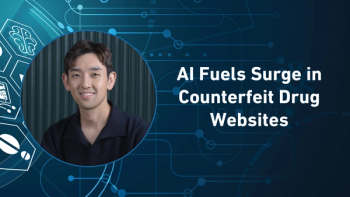
In the final part of his Pharma Commerce video interview, Mark Lee, MarqVision’s founder and CEO, warns that pharmaceutical companies are facing an exponential rise in counterfeit threats as AI accelerates the creation of fake websites, social media profiles, and manipulated product catalogs, making urgent investment in protective technologies a critical priority.

Addressing the most common concerns surrounding the legislation intended to establish interoperability within the pharma supply chain.

In the ninth part of this roundtable discussion, industry experts discuss how the pharma supply chain is evolving into an integrated business planning function, highlighting the need for diverse skill sets, digital dexterity, and AI-enabled capabilities to prepare Gen Z and future leaders for patient-centric problem solving.

This episode of Pharma Pulse covers the White House–EU agreement on pharmaceutical tariffs, Johnson & Johnson’s $2 billion expansion of its North Carolina manufacturing site, and a new federal rule requiring e-prescribing and prior authorization tools in certified EHR systems.
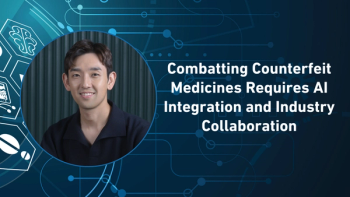
In the fourth part of his Pharma Commerce video interview, Mark Lee, MarqVision’s founder and CEO, discusses how healthcare companies and regulators can strengthen defenses against counterfeit drugs by integrating AI with physical authentication methods and enabling secure, anonymized data sharing across the pharm sector.

This episode of Pharma Pulse covers Catalent’s decision to cut 350 jobs at its Baltimore gene therapy site, new data showing rising adoption of digital tools for glycemic control in type 1 diabetes, and research linking severe childhood COVID-19 to heightened cardiovascular risk later in life.

In the third part of his Pharma Commerce video interview, Mark Lee, MarqVision’s founder and CEO, describes how AI-driven surveillance and image recognition vastly outpace traditional brand protection methods, enabling pharmaceutical companies to detect and remove millions of counterfeit listings across global online marketplaces and social media in real time.

The EQUIP-A-Pharma program will combine Battelle’s synthesis platform and Aprecia’s 3D printing technology to produce APIs and finished drugs at the same site, aiming to strengthen US pharma supply resilience and support essential medicines.
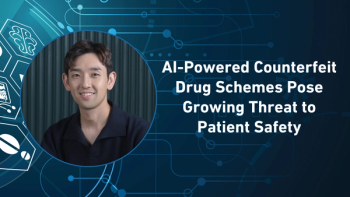
In the first part of his Pharma Commerce video interview, Mark Lee, MarqVision’s founder and CEO, warns that counterfeiters are using generative AI to clone pharmaceutical packaging, build convincing fake websites, and manipulate search results. rapidly outpacing enforcement efforts and putting patients at serious risk.









